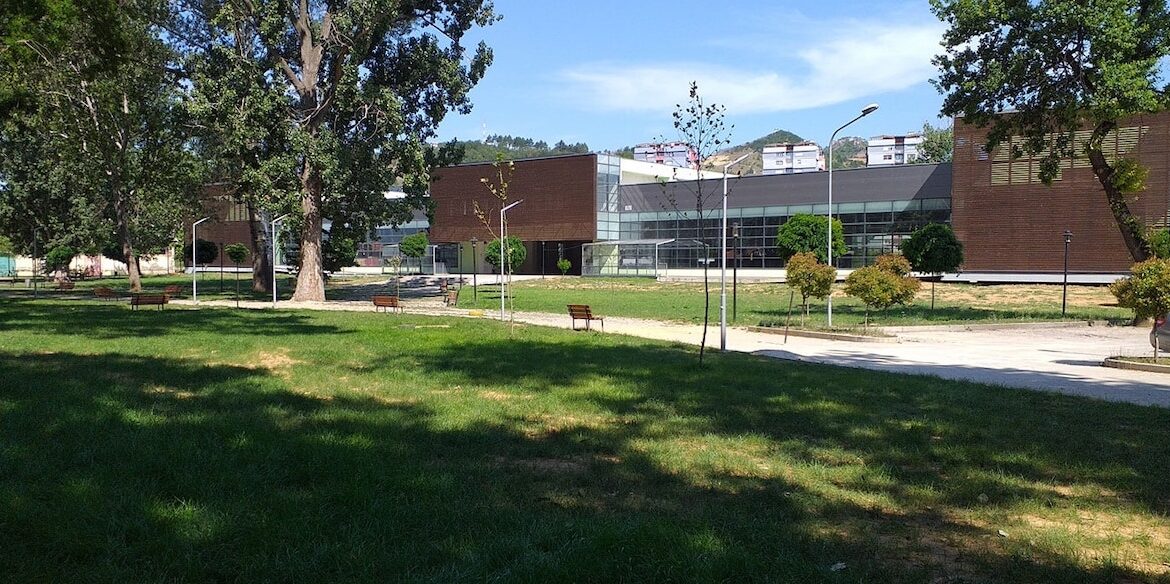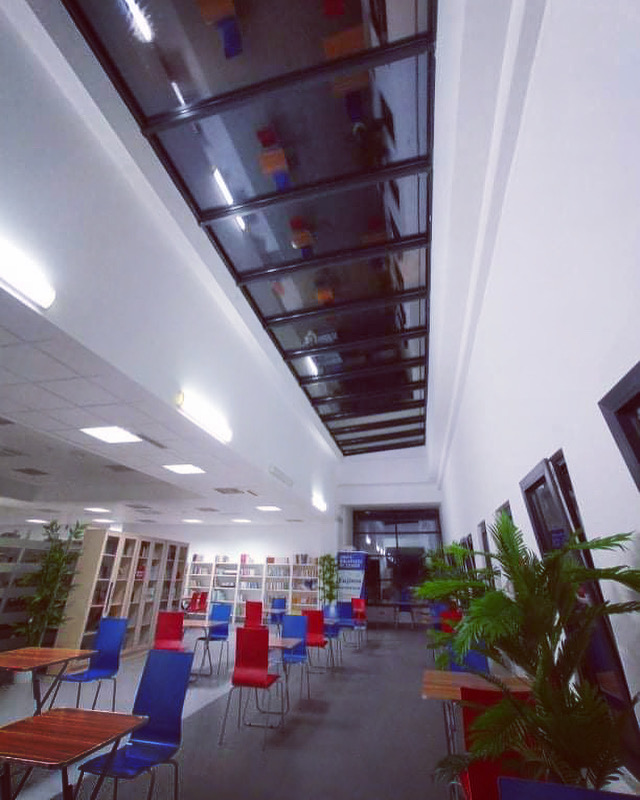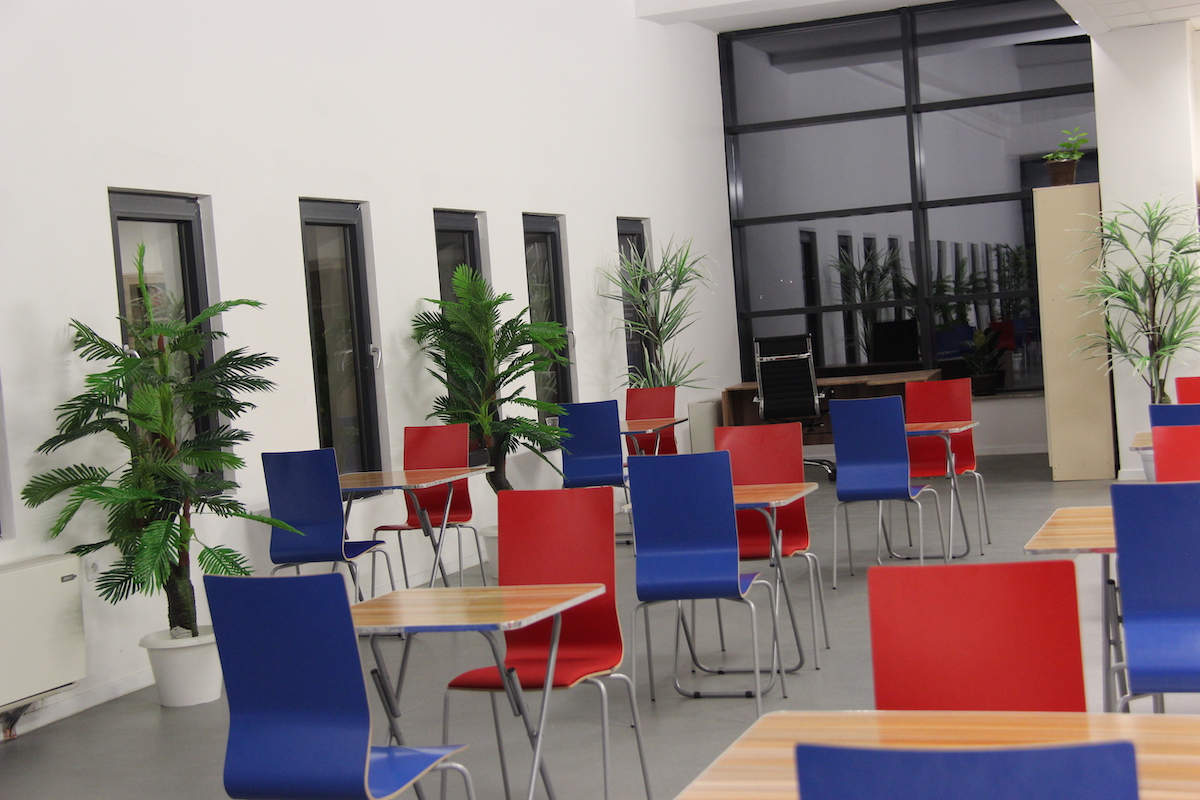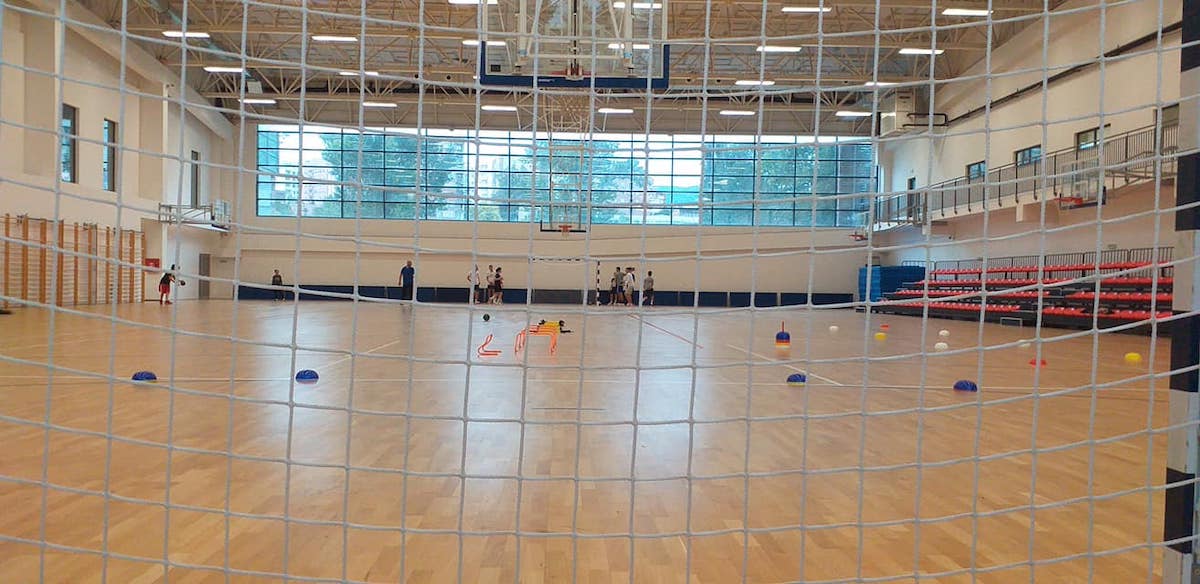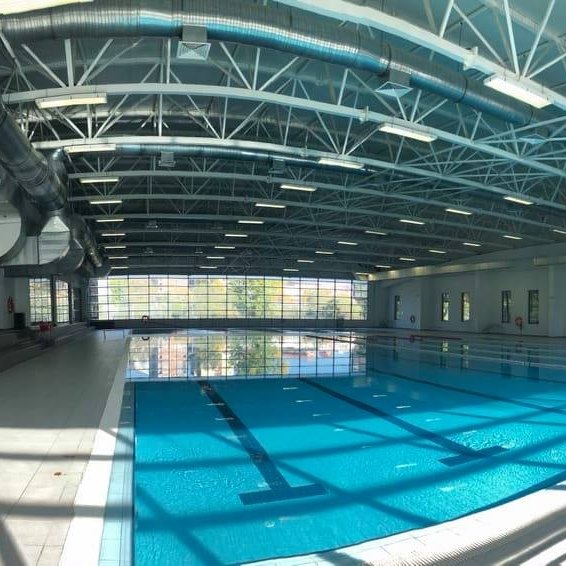By Anesa Colakovic
Summary: This article is about the process of establishing a peacebuilding library, known as the Educational and Cultural Learning Center, in the divided city of Mitrovica in Kosovo. I discuss how we developed and implemented the peacebuilding library model, which received support from Dr. David Philips, Director of Human Rights and Peacebuilding at Columbia University in the United States. Through local activism in community service and peacebuilding, I aim to create sustainable initiatives for all ethnic communities in my conflict-stricken hometown and advance innovative methods relevant to global peace practitioners.
Choosing Peace Amid Conflict
I grew up in a multi-ethnic, multilingual, and multi-religious environment in Kosovo, where violence and conflict continue to define ongoing animosities. With historically rooted animosities between the two main ethnic groups, it was common to fight because someone belongs to a different ethnic community, has a different religious perspective, or speaks a different language. While this is distressing to believe, it remains a present reality in the Balkans.
During my childhood years, I lived through the war in Kosovo. That experience not only impacted my personal life, it has also since influenced my academic and professional livelihood. However, it is not only the war itself that played a major role in shaping my educational and career development, but also the experience of living in a conflict-stricken zone after the war ended.
I was born in a middle-income family in northern Kosovo, in a town located an hour drive from the capital, through the rugged Prishtina Highway. My hometown of Mitrovica has been in conflict ever since 1999. There are times that the conflict intensifies and becomes a topic in an international agenda. And there are times when the conflict is instead much more localized. But there was hardly ever time for peacebuilding initiatives. Shootings, bombs, screams, protests, and sirens—I could relate everyday deprivations to my own life as a teenager. For these reasons, working for peace felt like a duty incumbent upon me, and therefore, I chose peacebuilding as my career path to specialize in.
Widening My Peacebuilding Perspectives
I completed my primary education in both the Albanian and Serbian languages. During history class, I used to learn contradicting information about the wars and battles in the Balkans. And I always thought about how in all of the history textbooks we learned from, we saw nothing written about peace. Rather, the focus was always on war, conflict, and crisis. I completed my high school education with English as the language of instruction, since I found it to be a language of mediation between Albanians and Serbs. In my viewpoint, it was a means for securing my work on future peacebuilding resolutions.
Later, on a Fulbright scholarship, I studied development in post-conflict countries and completed a certificate program in war and peace studies at Ohio University in the United States. For many years, I traveled to different conflict locations, attended numerous trainings, participated in seminars on peace and conflict resolution, created networks and friendships reaching the far corners of the world, and learned about peacebuilding efforts worldwide. But I did not come across sustainable peacemaking initiatives and peace in practice that I could subsequently apply to our local environment in Kosovo. I therefore came to see that we, as humans, struggle to sustain peace in the world. And for this, we need more people to document peace as a pathway for creating meaningful change. My passion for sharing knowledge and documenting peace continues to grow, in tandem with other peacebuilding methods I help create and innovate in my local community.
Building a Library of Peace
Mitrovica, my hometown, is unofficially divided between north and south sections. The north belongs to a majority population of Serbs and the south belongs to the majority of Albanians. Over the Ibar River is a bridge that ought to unite the town, but instead, it separates the two parts of Mitrovica. During the conflict times of shootings, bombs, sirens, and screams, I would read books to forget the situation that distressed me as a child—and later as a teen, and then as a student and a professional. Yet, ever since the war ended, it has been impossible to find a library when crossing both sides of the river in Mitrovica. As a result, I realized that I wanted to establish a common library for everyone in Mitrovica. But not any library: it had to be a peacebuilding library to bring together communities from both sides to collaborate, network, read, research, write, and socialize.
Over time, I especially came to understand that what books were shared with us as children, what we personally read as young adults, and what we hear about the world on a daily basis plays a major role in most of our life choices. This information and experiences shape our attitudes, behaviors, and value systems. Therefore, reading plays an important role for adults—and even more for children and youth, as they can learn from an early age to accept diversity, create long-term shifts in perspective, and develop positive behavioral change as they grow. In other words, reading is a powerful tool that can influence our attitudes and contribute to peacebuilding through a community-oriented post-conflict transformation process.
With generous funding from the Department for Human Rights and Peacebuilding at Columbia University in New York, I was able to pilot this institutional model by establishing a peacebuilding library in my hometown, which became known as the Educational and Cultural Learning Center. The library provides books in the local languages, as well as in English, German, and French. Apart from books, it is a welcoming space for youth in Mitrovica to work, study, network, and socialize.
As a concept and as a sustainable initiative at the local level, our Peacebuilding Library has received global attention and willingness to replicate this model in countries ranging from Iraq to Sudan. I have found that framing the peacebuilding library as a progressive idea with potential for international acclaim has been key to convincing leaders from the municipal level to the central government that this institution is worth having in every conflict zone and divided town. Gaining this support is especially important because willingness from local citizens alone is often not sufficient enough to succeed in creating a new community-based library. Peace practitioners need to be skilled in negotiation and remain dedicated to a long-term vision when building support for these types of transformational initiatives.
While keeping these lessons in mind, I am confident that peacebuilders in other regions of the world can find ways to adopt this approach in their local environments. The peacebuilding library as a concept not only provides an accessible space for reading and socializing; it offers a community building model that can bridge the divides of conflict and bring about new possibilities for peace.
About the Author
Anesa Colakovic was born in Kosovo. For 15 years, Anesa led numerous projects, events, and campaigns for social inclusion and community development in Kosovo, Serbia, the United States, and India. She has experience in setting up both organizations and businesses with a strong social focus.
In 2019, Anesa was named a Forbes 30 Under 30 semi-finalist and a disruptive innovator semi-finalist at Stanford University. She has served as a Fulbright scholar, a World Learning Fellow, and a Global Digital Fellow in the United States. Additionally, Anesa has innovated as a Schusterman scholar in Israel, a Rotarian in India, a German Marshall Fund alumna in Poland, a Global Laureate in Mathematics and Economics in Germany, a Peace Fellow in Thailand, an Interreligious Dialogue Fellow in Nepal and Portugal, and a Geoffrey Nice Scholar in Croatia.
Throughout Anesa’s professional and academic experience, she received numerous prestigious awards like the PEACE Award in Switzerland, Soros Travel Grant to Taiwan, Rockefeller’s Philanthropy Award, European Fund for Balkans, and UNICEF Award.

